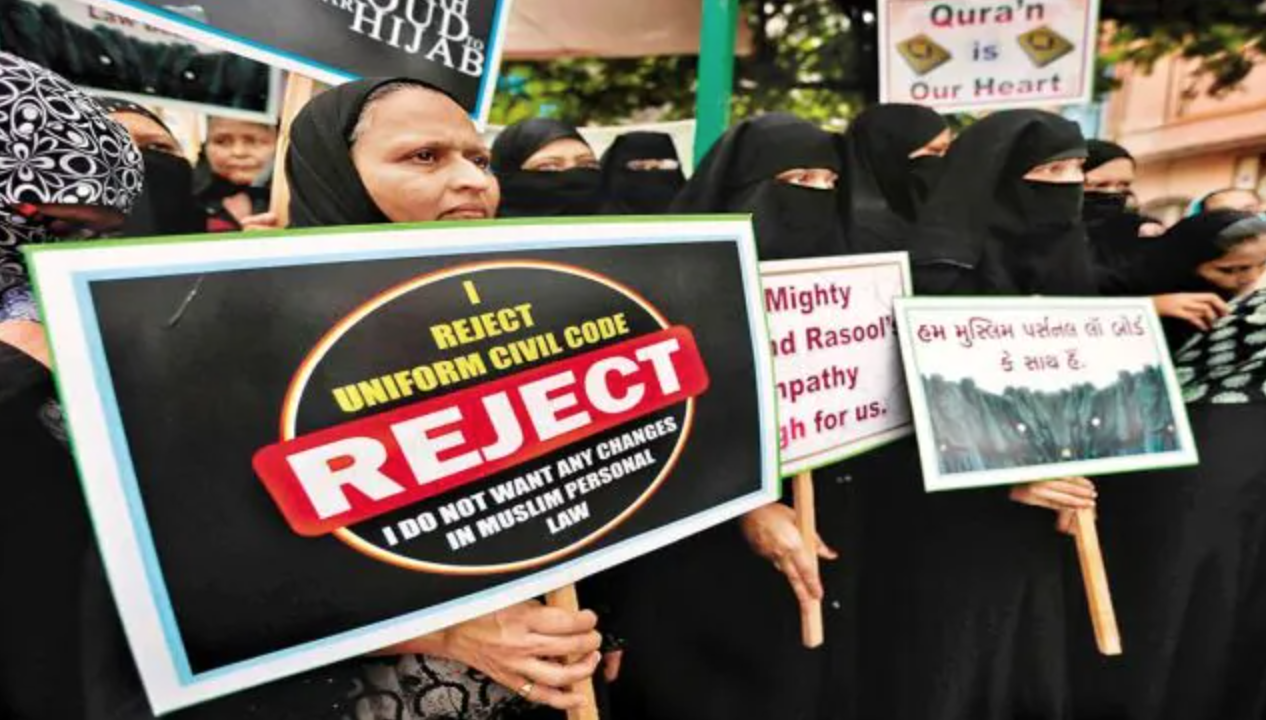Union Minister’s remarks reignite debate on controversial uniform civil code

On July 27, Rijiju said in the Lok Sabha that the BJP’s ideology on the uniform civil code should be taken as the country's ideology on the same.
Basil Islam | TwoCircles.net
NEW DELHI — Union Minister Kiren Rijiju’s recent remarks on implementing the uniform civil code have re-ignited the debate on the viability of a uniform civil code and its possible impact on the minority rights in the country.
Answering an unstarred question in Lok Sabha, the union minister of Law and Justice Kiren Rijiju on July 22 said, "There are some writ petitions pending in the Honourable Supreme Court of India regarding uniform civil code. Since the matter is sub-judice, no decision on implementation of uniform civil code in the country has been taken as of now.” Rijiju said that the states are free to legislate on a uniform civil code (UCC). “Personnel laws such as intestacy and succession; wills; joint family and partition; marriage and divorce, relate to Entry 5 of the List-II-Concurrent List of the Seventh Schedule to the constitution, and hence, the states are also empowered to legislate upon them,” Rijiju stated in the written reply in Lok Sabha.
Earlier the Uttarakhand government had formed an expert committee headed by retired Supreme Court judge Ranjana Desai to implement the UCC and check all the relevant laws that control personal matters in the state. Following the cue, Keshav Prasad Maurya, the deputy chief minister of Uttar Pradesh, also stated that his government is working on plans to implement the UCC in the state. “It is required that we get out of the system of one law for one person and another for others,” Maurya told reporters in Lucknow.
The UCC comes under Article 44 of the constitution's Directive Principles Of State Policy. It proposes to introduce personal laws that would apply to all citizens equally, irrespective of their religion, gender, caste, etc. However, they are regarded as only guidelines, and it is not mandatory to use them. Many minority groups, particularly Muslims, have been at the forefront of the protest against the implementation of UCC, claiming that it will go against the plural character of the country and minority rights.
On July 27, Rijiju said in the Lok Sabha that the BJP’s ideology on UCC should be taken as the country's ideology on the same. This statement which comes out after a week when he said that it is a matter of the court, clearly reflects that the ruling party wants the issue on the hot plate. "About Uniform Civil Code, you know what our government's thinking is on it. We want that what is our party's ideology should be taken as the country's ideology.” As the opposition benches strongly protested his statement, he responded, "It's only a party that forms a government."
Following the latest statement by Rijiju, the All India Muslim Personal Law Board (AIMPLB) reiterated their position of UCC being ‘unconstitutional’ and ‘anti-minority’. “The UCC issue has been raked up to push the agenda of hatred and discrimination. This anti-Constitutional move is not acceptable to Muslims at all. The AIMPLB strongly condemns this and urges the government to refrain from such actions,” the AIMPLB general secretary Maulana Khalid Saifullah Rahmani said in a statement on July 28.
Basil Islam is an independent journalist and researcher based in South India. He tweets at @baasiie
